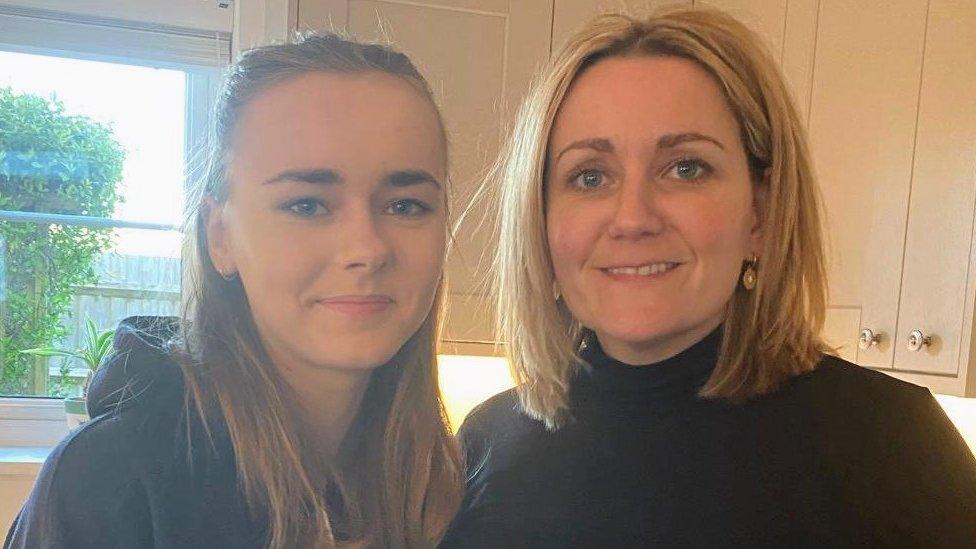Ripon woman calls for mandatory autism training in schools and businesses
- Published

Tynisha Abdy is calling for businesses and schools to train staff to understand autism
A North Yorkshire woman has called for autism awareness training to become mandatory in education and workplaces.
Tynisha Abdy, from Ripon, said people should understand the "bare minimum" of issues around neurodivergence.
She has set up a petition calling for at least one person to be trained in Level 2 Understanding Autism in all companies, schools and public services.
Ms Abdy, 21, said a lack of understanding forced her to drop out of university, which "destroyed her".
Speaking to BBC Radio York during Autism Awareness Week, Ms Abdy explained that autism could often be hard to spot in people.
"In my daily life, it is normal to me, but to other people, it is hard to see," she said.
"The basic way of explaining it is that it's a different way our brain works and we have a different ability with things like sensory, noises, touches, that can affect our social cues."
Ms Abdy added people could be affected by autism in different ways, as she was usually fine with noises and light, but on "some days I can't stand loud noises and some days I just want to be alone, so I think people need to understand that every day is different".
In February, the government carried out a review into autism in employment, external and found that maintaining long-term employment was a challenge for people with autism.
'Many autistic people face huge barriers'
The review, which was led by Sir Robert Buckland, highlighted that "many do not receive the necessary support or adjustments to enable them to fulfil their role in the face of inaccessible sensory and social environments".
It also acknowledged that "many of the employers who spoke to the review said that they generally want to support autistic employees, but often don't know how".
Richmal Maybank, employer engagement manager at the National Autistic Society, called on the government to "do more", as a better understanding of autism in the workplace "could transform thousands of autistic people's lives".
Speaking to the BBC, she said: "Autistic people have a huge amount to offer employers, and more businesses are recognising the benefits of having a diverse workforce, full of people who offer a variety of skills and different ways of thinking.
"But still many autistic people face huge barriers in finding and staying in work.
"The government must do more to create an employment system that works for autistic people, and fully fund a national autism strategy so that autistic people can get the vital support they need."

Follow BBC Yorkshire on Facebook, external, X (formerly Twitter), external and Instagram, external. Send your story ideas to yorkslincs.news@bbc.co.uk, external.
- Published31 March 2024

- Published31 March 2024

- Published25 March 2024

- Published21 March 2024
